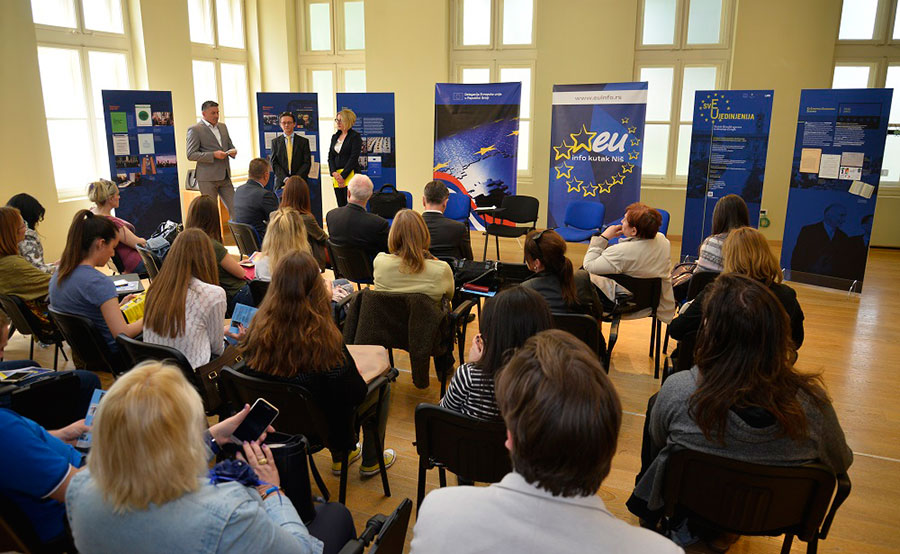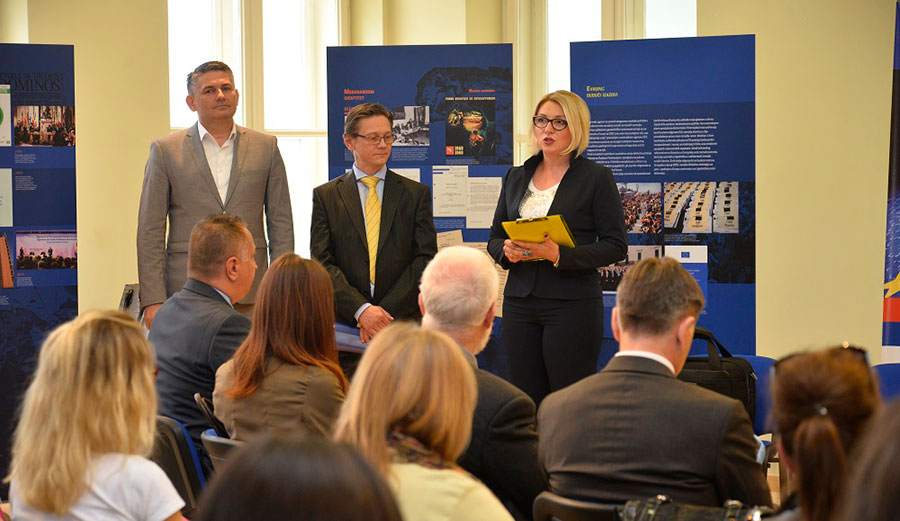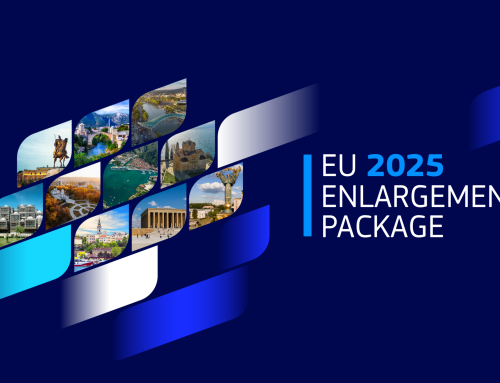In celebration of the 60th anniversary of the Treaties of Rome, which once laid the foundation of the European Economic Community, predecessor of the modern-day European Union, the exhibition titled “Ever Closer Union – The Legacy of the Treaties of Rome for Today’s Europe” opened today in Nis at the Oficirski dom and is scheduled to run until 17 May. The exhibition is organised by the EU Info Point Nis in cooperation with the EU Delegation to Serbia, the Embassy of Italy in Serbia and the City of Nis. The exhibition was inaugurated by Richard Maša of the EU Delegation to Serbia who said that “this important anniversary is a chance to remind ourselves that the European Union was founded on values such as peace, solidarity and human rights. Over the past 60 years, the EU has brought us prosperity for which it was awarded the Nobel Peace Prize five years ago.“
Public Space Manager of the EU Info Point Nis Bojana Petrovic reminded the visitors of the exhibition had been originally launched on the very anniversary of the Treaties of Rome, on 25 March, in the Italian capital. “As you can see, the exhibition is divided into 5 segments: historic overview, economic Europe, social inclusion and European citizenship, Europe in the world and Europe: future challenges,” Petrovic said.
Deputy Mayor of Nis Milos Bandjur also welcomed the participants and said that “the Treaties of Rome are probably the most important event in the long process of creating the EU and the citizens of Nis are honoured to have a chance to see the exhibition celebrating this anniversary.”
 Following the opening of the exhibition, an eponymous debate was held, participated in by Richard Maša of the EU Delegation to Serbia, Boban Stojanovic, a Professor at the Faculty of Economy in Nis and Aleksandar Mojasevic, a Professor at the Faculty of Law in Nis.
Following the opening of the exhibition, an eponymous debate was held, participated in by Richard Maša of the EU Delegation to Serbia, Boban Stojanovic, a Professor at the Faculty of Economy in Nis and Aleksandar Mojasevic, a Professor at the Faculty of Law in Nis.
Commenting on the previous 60 years of the EU, Maša said that “the creation of the European Union is a brave project that brought peace and prosperity to the part of the world that had once been plagued with wars. What began as a project of unity and cooperation is still working, creating values which are taken for granted by modern Europeans – the freedom of speech, the possibility of moving visa-free through the Schengen. We have to bear in mind all the time that what we have achieved is not guaranteed, but requires continuous commitment to preserve it.”
The Professor at the Faculty of Economy in Nis Boban Stojanovic said “all Eastern European EU Members have gained a lot through European integration. In economy, it is a known fact that larger markets open greater opportunities,” Professor Stojanovic said that Serbia should create better conditions to strengthen SMEs and attract quality investments.
The Professor of the Faculty of Law Aleksandar Mojasevic spoke about the importance of EU market with some 500 million people. He said that “the European Commission has been committed to protection of competition. Serbian citizens will benefit the most from European integration, as the anti-trust policy would strengthen the competition and thus create far more favourable conditions for consumers.”




